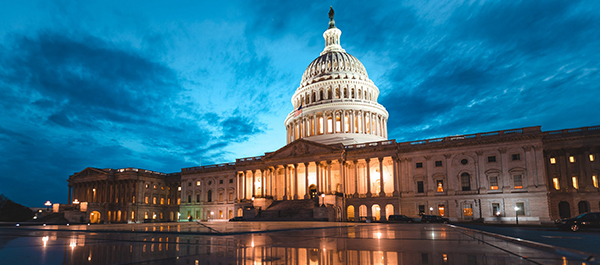Clean Water Current
Muni Bonds Remain Exempt as Tax Reform Advances; FY 2018 Funding Deadline Looms

(December 5, 2017) – In the early morning of December 2nd, Senate Republicans voted to pass their comprehensive tax reform proposal, joining the House in achieving was has become Republican’s top legislative priority for the year. On Monday, Dec. 4th Congress moved to enter into a conference to negotiate out the numerous differences between the House and Senate bills. Republican leadership has been clear they want to finish conferencing the two bills as quickly as possible with an eye toward sending a package for the President’s signature before Christmas.
NACWA is very pleased to report that both the House and Senate maintained the tax-exempt status of municipal bonds in their respective bills. This means that, as the two chambers conference their bills, the tax-exemption should remain safe. Throughout 2017, NACWA’s top priority for tax reform has been to preserve the tax-exemption for municipal bonds, the critical core financing tool for clean water agencies.
Earlier this year NACWA and AMWA partnered on research to analyze the impact of these bonds in all 50 states, which was found to total around $38 billion nationally each year, and the impact eliminating the tax-exemption would have for water and wastewater. During our Congressional advocacy throughout the year it was clear that there is significant bipartisan support for the current tax-exemption and bipartisan champions in the House, but also that truly nothing was safe, even critical financing tools for infrastructure -- in terms of how tax cuts and reform could be paid for in a quickly-developing legislative package.
While the preservation of tax-exempt status is a critical advocacy victory, NACWA also remains concerned that an important tool utilized by many municipal bond issuers, Advance Refunding, is being repealed. The provision to repeal Advance Refunding was first incorporated into the House bill in November, and then included in the Senate bill as well despite a quick push-back from the municipal sector, including NACWA.
NACWA has sent several letters on Advanced Refunding to House and Senate offices. As the repeal gained attention as the tax reform proposals were pushed forward, the issue has also been picked up the press. Governing magazine ran an article discussing the nexus between infrastructure and tax reform and citing NACWA’s concerns which linked to our letter to the Senate. The Wall Street Journal also ran an article on how the Advance Refunding repeal will make it more difficult to refinance debt for infrastructure costs. NACWA’s and AMWA’s legislative staff also joined the Bipartisan Policy Center in a Facebook live event on Advance Refunding that was shared with Congressional staff.
NACWA’s outreach has focused on communicating the concerns that many of our public utility members have shared regarding this repeal, and utility member examples of where Advance Refunding has saved local dollars for water infrastructure. NACWA is also working on a municipal sector letter asking Congress to work out a transition period – either a one-year delay in the Advance Refunding repeal effective date, or a grandfathering in of outstanding municipal bonds – given the extremely short notice municipal bond issuers have had to prepare for this looming repeal. Any public utility members wishing to do additional outreach within the next 24 hours – in particular, if you have any Advance Refunding plans in the pipeline – are encouraged to reach out to Kristina Surfus, NACWA Legislative Director ASAP. NACWA will continue engaging on behalf of clean water agencies as tax reform heads into its final stretch.
While Congress pushes ahead full-steam on tax reform, the deadline also looms for the current Fiscal Year 2018 Continuing Resolution (CR) on December 8. It appears that Congress will sign another short-term extension this week to buy a couple more weeks to focus on tax reform, followed by another CR into the new year, although negotiations are fluid. NACWA continues to engage in this process and sent up a letter to Appropriators with other water sector organizations urging continued strong funding for water programs. We anticipate that levels for most programs will end up generally level with FY17 through the close of FY18.